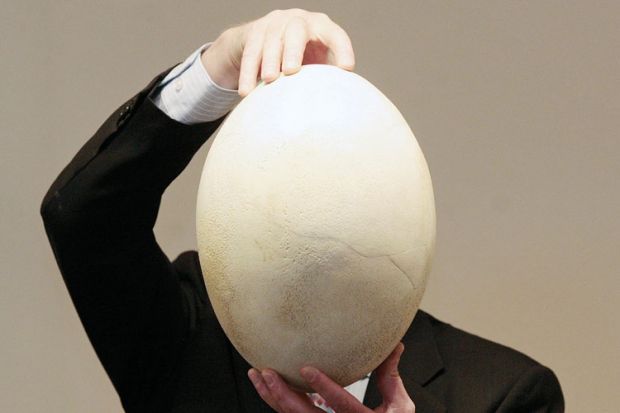The trend among research funders to give out fewer but larger grants may not be the best use of resources, a study of scientific productivity suggests.
A group led by Adam Eyre-Walker, professor of biology at the University of Sussex, has found that although size of research groups correlates with the volume and quality of their outputs, a law of diminishing returns operates.
The findings are reported in a paper, “Research groups: How big should they be?”, published this month in the biomedical journal PeerJ. Based on data from nearly 400 UK-based principal investigators in biology, the researchers found that the correlation between the size of groups and their output of papers over the past five years is reasonably strong (0.43, where 1 would be a perfect correlation). However, size correlates much more weakly with their citations per year and the impact factor of journals in which they publish (0.15 and 0.14 respectively). The positive effect of group size on all three metrics shrinks as size increases.
The authors believe that this is because principal investigators, as the most highly trained members of the group, have a larger effect on publications than other members, at least in small groups. “Since there is generally only one PI per group, increasing group size leads to a dilution of this contribution and hence diminishing returns,” the paper says.
The authors recognise that principal investigators are more expensive to employ than other scientists, but they calculate that hiring more would still optimise resource use provided that their salaries are less than five times that of more junior scientists. However, the researchers also acknowledge that some types of science might be possible only in large groups and that hiring more principal investigators would probably lower their average quality.
Funders such as the research councils and the Wellcome Trust have moved in recent years to giving out fewer, larger grants in the hope of freeing top researchers to be more ambitious. However, the authors believe that their findings “support a funding model in which productivity is maximised by having many small groups”.
POSTSCRIPT:
Article originally published as: Chasing big bang for bucks might be poor use of funders’ cash (25 June 2015)
Register to continue
Why register?
- Registration is free and only takes a moment
- Once registered, you can read 3 articles a month
- Sign up for our newsletter
Subscribe
Or subscribe for unlimited access to:
- Unlimited access to news, views, insights & reviews
- Digital editions
- Digital access to THE’s university and college rankings analysis
Already registered or a current subscriber? Login






